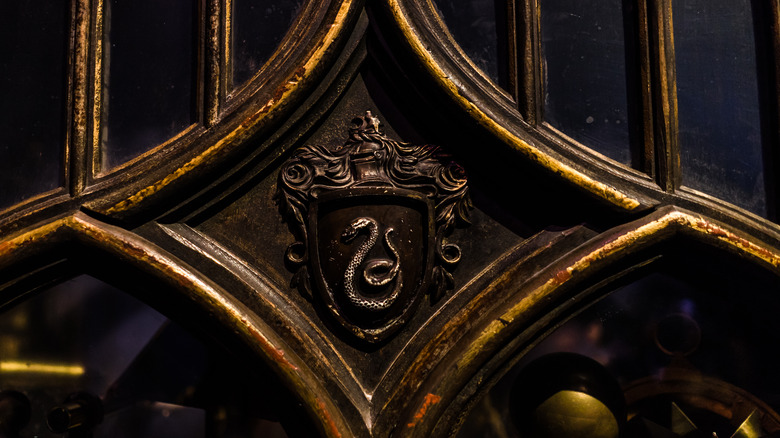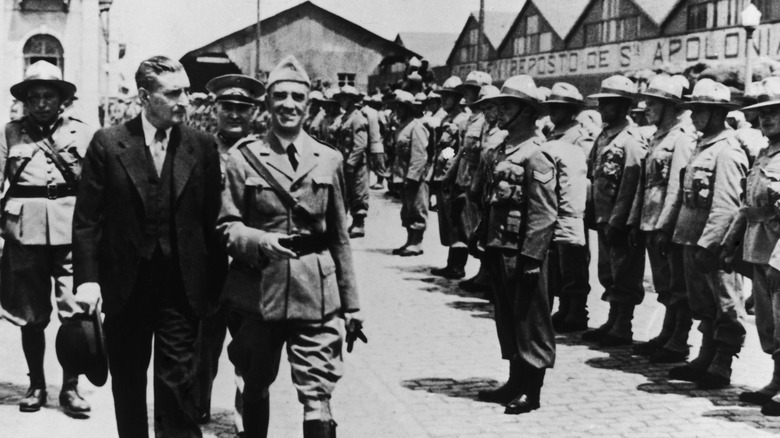The Real Historical Figure Who Inspired Salazar Slytherin In Harry Potter
In the Harry Potter franchise, the antagonistic (relative to the protagonists) House Slytherin is one of the four houses into which Hogwarts students are sorted into. This one in particular is infamous for having been the house of many murderous wizards, including Lord Voldemort and many of his "Death Eater" followers. It was founded by the wizard Salazar Slytherin, who believed that only pure-blood witches and wizards should attend the school and that potential half-blood and muggle-born students should be turned away.
While the three other founders overruled him, his ideology persisted and continued to influence the students sorted into his house. While she was not inspired by any real-world wizards when creating this character, J.K. Rowling stated in a 2017 tweet that he does have at least a nominal historical inspiration — Portuguese prime minister Antonio de Oliveira Salazar, whose authoritarian leadership of the country has had its own controversial legacy.
Salazar drew a line at joining the Axis
Initially a professor, Salazar began his political life with the 1926 coup by the Portuguese military against the republic. Salazar was twice offered a role in the new government's finance ministry, accepting the second time (via Britannica). Serving under President Antonio Oscar de Fragoso Carmona, Salazar built up his own reputation until Carmona appointed him prime minister in 1932. From here Salazar's actions reflect those of many authoritarian leaders of the period — personally creating a new constitution while he used his newfound power to make major infrastructural change (with moderate success) while secret police enforced his will.
However, while Salazar's dictatorship was extremely nationalistic and dictatorial, there was a conscious effort on his part to ensure Portugal diplomatically remained as far from the Axis as possible (via The New York Times). Throughout World War II, Salazar maintained as close a relationship with the Allies as Portugal's neutrality would allow, and after the war, even became a foundering member of NATO. Ultimately, it was his desire to retain the country's colonies and inability to adequately address social inequality that led to the Carnation Revolution following his removal from power and death (via Scroll).

